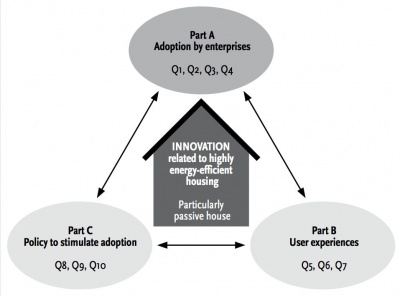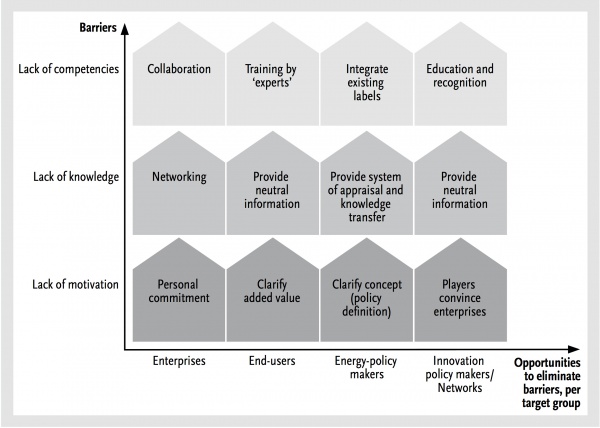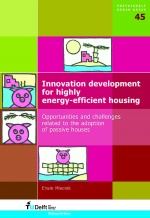Innovation development for highly energy-efficient housing
General
Research of Delft Centre for Sustainable Urban Areas by Erwin Mlecnik. He defines the opportunities and challenges related to the adoption of Passive Houses that takes into account the supply side, the demand side and the policy side. It reveals important features of innovation-adoption strategies in the building sector for the adaptation of highly energy-efficient housing concept, particularly that of the Passive House. He clearly defines barriers and drivers in the proces of adaptation of innovative technology such as Passive House design. Based on research in Flanders, The Netherlands and throughout Europe he reflects on
- innovation actors;
- the interdependence of the adaptation by endusers, businesses and policymakers;
- aspects in the decision making proces of the end users;
- solutions to overcome the gap between early adoptors/early majority to the late majority in dependence of the three major actors.
Conclusions
The two main-recommendations of Mlecnik's research:
Makers of innovation and energy policy should support specific change agents:
- Energy policy and innovation policy should be integrated for the construction sector.
- Enterprise collaboration and multi-player networking should be stimulated.
- Funded innovation agents should guide committed SMEs and suppliers.
- Funded change agents should guide potential adopters in each step of their innovation-decision processes.
- In some cases, these change agents could also combine their communication activities with positions as enterprise-innovation agents.
Quality-assurance schemes for highly energy-efficient housing should be introduced or revised:
- Benefits that are not related to energy should be used to persuade potential adopters.
- The quality of demonstration projects should be assured.
- A pool of experienced actors should be developed.
- End users should be provided with detailed information.
- Indoor comfort and the adequate performance of building services should be guaranteed.
- A system of appraisal for nearly zero-energy housing should be defined, using available passive house labels or related experiences.
- An educational programme should be developed, particularly for highly energy-efficient housing renovation.
Read more:
Free download of the book via TU Delft:

